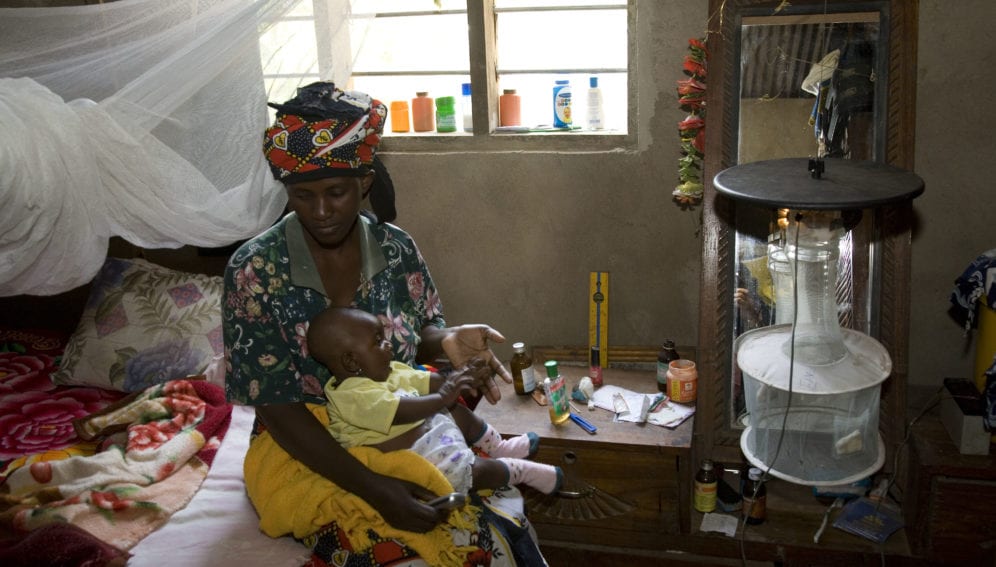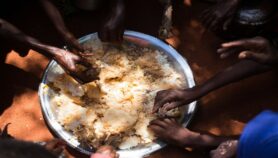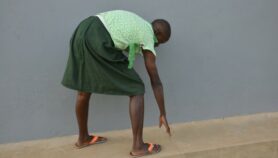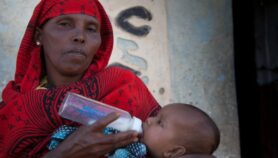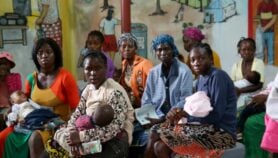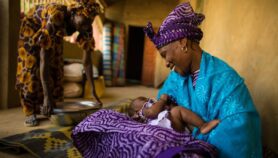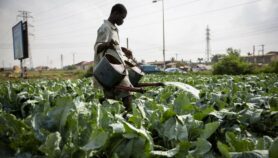By: Maxwell Awumah
Send to a friend
The details you provide on this page will not be used to send unsolicited email, and will not be sold to a 3rd party. See privacy policy.
[ACCRA] Iron supplements are effective at lowering incidences of malaria among children in Africa, a study reports.
In 2006, the WHO and the UN Children's Fund (UNICEF) issued a joint statement that recommended limiting the use of iron supplements among children in malaria-endemic areas due to fears that it would increase cases of the disease.
But recent studies appear to recommend a rethink of this policy, suggesting that a failure to use these supplements could increase malaria risk and undermine anaemia-control programmes.
Despite this, some researchers still support the WHO and UNICEF position. They say that several studies suggest iron supplementation for children with iron deficiency in malaria-prone areas may increase the risk of the disease.
The latest of these studies, published in the Journal of the American Medical Association on 4 September, indicates that children in malaria-endemic parts of Ghana who took a micronutrient powder (MNP) enriched with iron, were not at greater risk of developing malaria.
Malaria is one of the leading causes of childhood deaths in Africa, with iron deficiency among the most common preventable nutritional deficits, according to the 'Global Burden of Disease 2010' report published last December.
The study aimed to establish how providing an MNP with or without iron affected the incidence of malaria among six- to 35-month-old children living in rural areas of central Ghana with a high incidence of the disease.
It found a significantly lower malaria incidence overall in the iron-supplemented group compared with the group that did not receive iron.
Stanley Zlotkin, the lead author of the study, says it addresses a gap in the literature and has potential policy implications for African countries such as Ghana that have not implemented iron fortification as part of an anaemia-control programme, in part, due to the statement from WHO and UNICEF.
WHO now recommends iron fortification for preventing and treating anaemia. As a result, there is renewed interest in using it in national and regional nutrition policy.
Zlotkin, who heads the Sprinkles Global Health Initiative at the Hospital for Sick Children in Toronto, Canada, tells SciDev.Net: "Going forward, the provision of iron supplementation should be implemented in conjunction with measures to diagnose, prevent and treat diseases in line with the new WHO guidelines, granting iron fortification for infants suffering from anaemia under age two".
Seth Owusu-Agyei, director of the Kintampo Health Research Centre in Ghana and study co-author, says: "The findings pave the way for an anaemia-control strategy through the use of iron in MNPs and should be used without any further delay to improve the chances of survival and quality of life in children."
But health researcher with the Ghana Health Service, Francis Zotor, opposes the full-scale implementation of MNP, noting that empirical research about its effectiveness has not been fully explored. He says that the scheme should only be fully rolled out if research can offer reassurance over public safety.
Link to study's abstract
This article has been produced by SciDev.Net's Sub-Saharan Africa desk.
References
Journal of the American Medical Association doi: 10.1001/jama.2013.277129 (2013)


